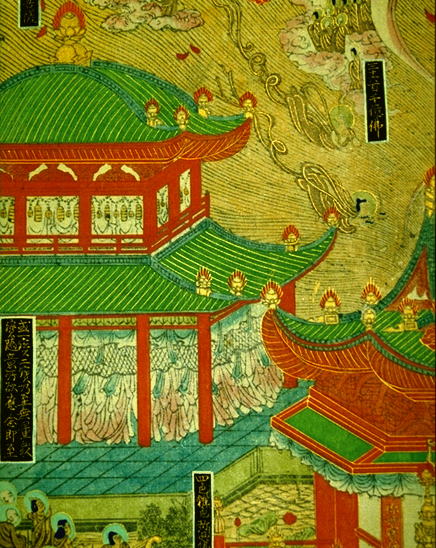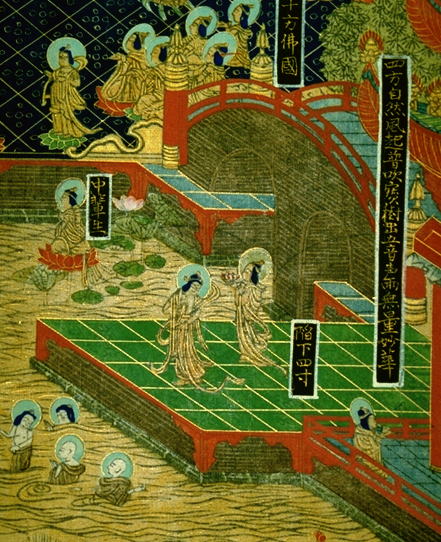
A richly adorned palace building.
Illustrated
(18-21)
Illustrations from the Larger Sutra Mandala
| Karmic rewards of a beggar and a king |
| Comparison between heavens and the Pure Land |
 A richly adorned palace building. |
| Pleasures in the Pure Land |
 Flowers scattered on the ground |
| Flowers and innumerable rays of light emitted from them |
Go to Next File; return to Sukhavati-Index; Index